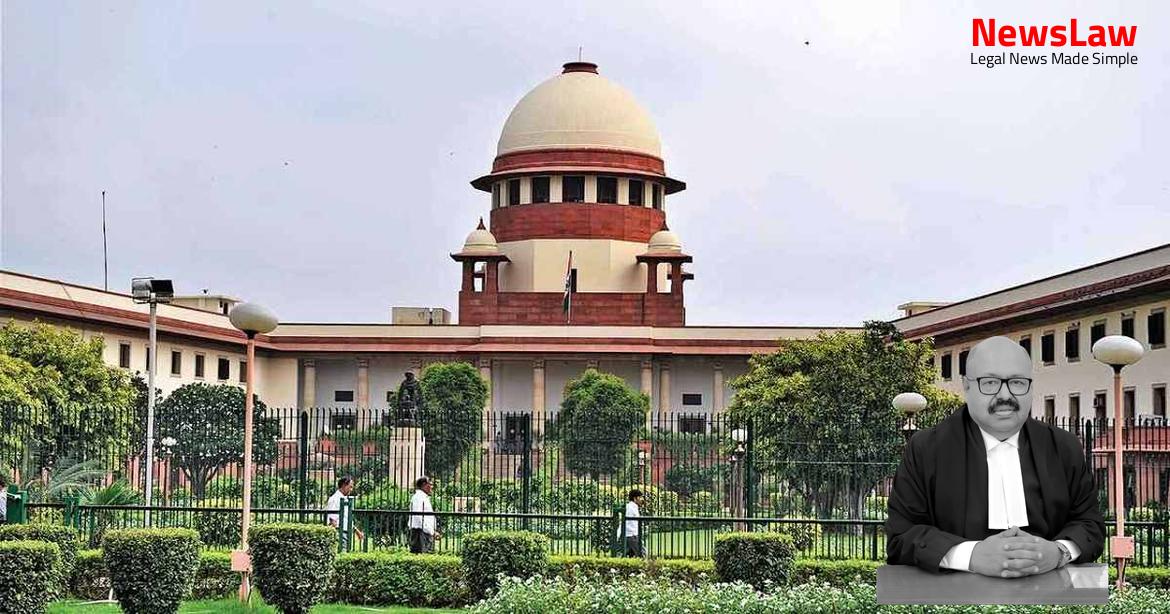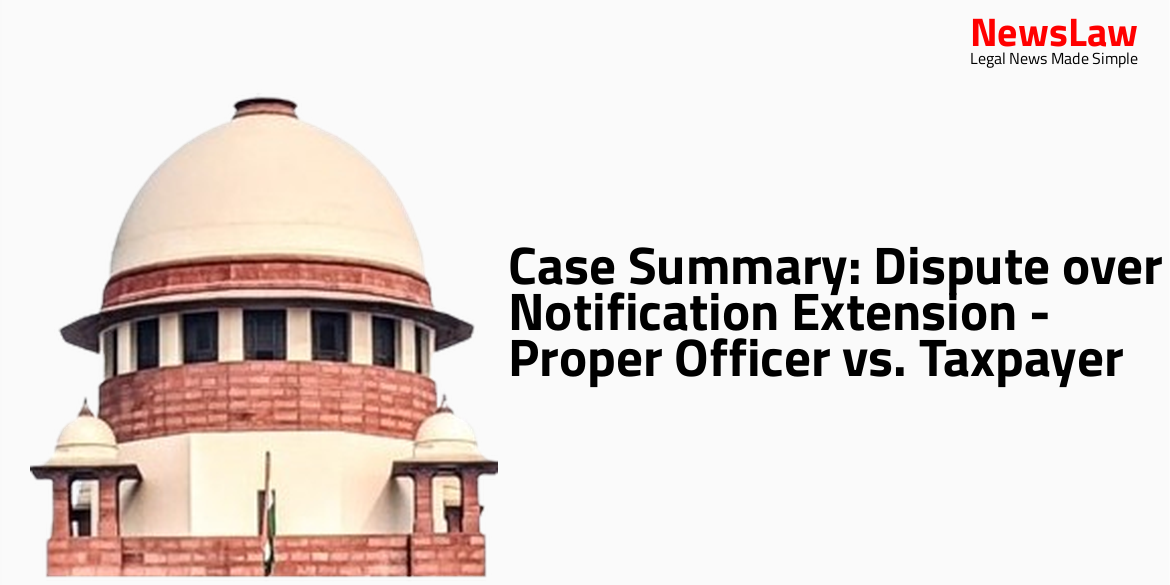A significant legal battle unfolded in the Supreme Court regarding the marketing approval of ‘TrastuRel.’ The case involved Reliance Life Sciences Pvt. Ltd. seeking approval to launch their biosimilar drug, which was challenged by the appellants. The matter raised concerns about the required tests and studies for the drug’s approval. Stay tuned to learn more about the implications of this case on the healthcare sector.
Facts
- The appellants challenged the approval granted by the Drugs Controller General of India to Reliance Life Sciences Pvt. Ltd. for marketing ‘TrastuRel.’
- An interim order was passed restraining Reliance from launching ‘TrastuRel’ until the next hearing.
- The appellants alleged that Reliance’s biosimilar drug did not undergo required tests and studies.
- The High Court allowed Reliance to launch ‘TrastuRel’ based on approved regulatory authorities’ decision.
- The appellants claimed that Reliance did not conduct the prescribed trials for the biosimilar drug.
- A separate suit was filed against F. Hoffmann-La Roche, AG, and Mylan Inc. seeking restraint against their biosimilar version of ‘Trastuzumab.’
- Despite the appellants’ drug patent expiring in 2013, they sought to restrain Reliance from marketing ‘TrastuRel.’
- The innovator of ‘Trastuzumab’, Genentech Inc., along with Roche, filed the suit against Reliance.
- The trial was ongoing to determine the validity of the approval granted to Reliance for ‘TrastuRel.’
- The Division Bench of the High Court allowed the application of the respondent to grant an interim stay on the Single Judge’s order from 25.04.2016.
- The Division Bench did not grant any interim relief to the respondent before the impugned order of 18.9.2019.
- The Division Bench considered the expiry of the patent as a relevant issue in granting relief to the respondent.
- The final decision on the matter is pending until the completion of the trial.
- The High Court was requested to expedite the hearing and disposal of the appeals within a stipulated time frame.
- The Court recorded a prima facie finding that ‘TrastuRel’ was approved by the DCGI under applicable law.
- The approvals for ‘TrastuRel’ were found not to be based on adherence to Guidelines 2012 and rules under the Drug Act.
- Biocon and Mylan were permitted to continue marketing their products without additional compliance as they had been in the market for almost two years.
Issue
- Defendant No.3 may proceed to manufacture, market, and advertise their product as TrastuRel without using terms like ‘biosimilar’ or ascribing biosimilarity to plaintiff’s products.
- Defendant No.3 may use the INN name Trastuzumab for their product, but not as a standalone brand name on packaging.
- The product can be labeled as Reliance Trastuzumab or TrastuRel to describe the composition, but not in a prominent manner.
Also Read: CRPF Act: Validity of Rule 27 for Compulsory Retirement – Case of Head Constable vs. CRPF
Arguments
- The appellants argue that the Division Bench only considered respondent No. 3’s application on merit without entertaining the appellants’ application simultaneously.
- The appellants contend that the drug ‘TrastuRel’ by Reliance has been successful in government tenders and thus, conditions imposed by the Single Judge should not have been interdicted without the final decision in Reliance’s suit.
- Reliance is claimed to have approval for their drug ‘TrastuRel’ without undergoing required testing as per the Act, Rules, and Guidelines.
- The DCGI did not consider Reliance’s drug to be at par with the drugs produced by Biocon and Mylan.
- The appellants argue that the Single Judge rightly stipulated conditions for marketing ‘TrastuRel’ by Reliance due to lack of required trials and misappropriation of data.
- The Division Bench order allowing parity between Reliance and Biocon and Mylan was criticized for not conforming to statutory rules.
- The direction to add a qualifier to the word ‘Trastuzumab’ for Reliance’s drug was considered necessary for patient safety and to distinguish from the innovator’s drug.
- The timing of Reliance’s suit was questioned by the Senior Counsel suggesting it was filed when Reliance was ready to launch their product after obtaining all necessary approvals.
- The Union of India’s counsel did not make specific submissions but mentioned that the DCGI granted approval to respondent No. 3.
- The issue of INN is highlighted as a crucial point in the dispute between the parties.
- The defendants attempted to pass off their drug as a biosimilar product of ‘Trastuzumab’, marketed by the appellants.
- The court found that there was a possibility of confusion among consumers regarding the two products.
- The appellants successfully argued that such a misrepresentation could have serious consequences on patients’ health.
- The appellants were granted injunctive relief in order to prevent the defendants from marketing their drug in a way that could cause confusion or harm.
Also Read: DAMEPL vs. DMRC: Curative Petition and Arbitral Award Restoration
Analysis
- The Division Bench allowed respondent No.3 to market their biosimilar product ‘TrastuRel’ based on parity with other companies.
- The suit filed by the appellants is not a trademark or patent enforcement action.
- The Division Bench focused on considering the appeal and application filed by respondent No.3.
- The interim order imposed conditions for the marketing of respondent No.3’s product pending final decision in the suit.
- The Division Bench’s failure to simultaneously consider the pending appeals and interim applications of both sides was noted.
- The court upheld the interim measures for respondent No.3 but urged the High Court to expedite the final decision on the suit.
- The Division Bench’s order did not take into account this Court’s earlier direction for analogous consideration of both parties’ applications.
- The issue of balance of convenience was not adequately considered by the Division Bench.
- Court should not have unsettled the prevailing situation for the last three and a half years
- Final conclusion of the Reliance suit should have been reached before making a decision on the appellant’s applications
Decision
- The views expressed are solely for the purpose of this appeal and do not impact the pending proceeding in the High Court.
- The interim direction given by the learned Single Judge on 25.4.2016 is made operational.
- The appeal is allowed without any order on costs.
- The impugned order is set aside, and the appeal is allowed.
Case Title: M/S GENENTECH INC. Vs. DRUGS CONTROLLER GENERAL OF INDIA
Case Number: C.A. No.-009491-009491 / 2019



